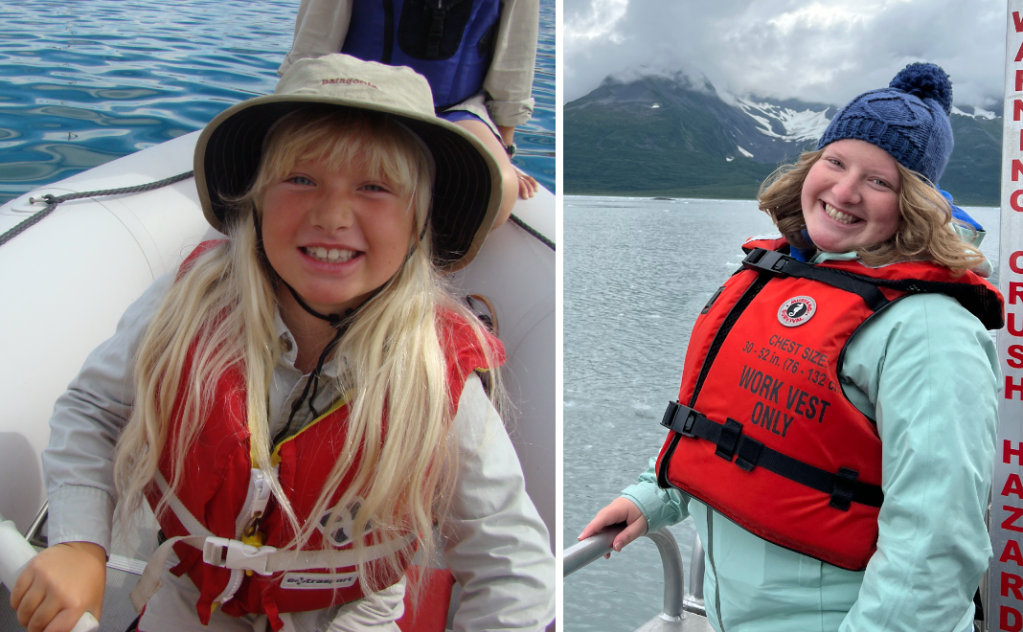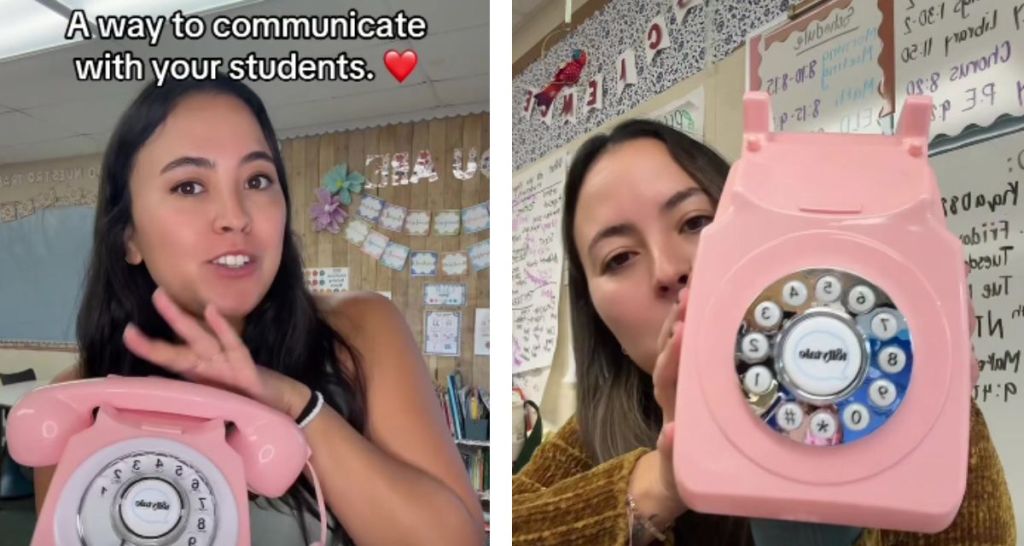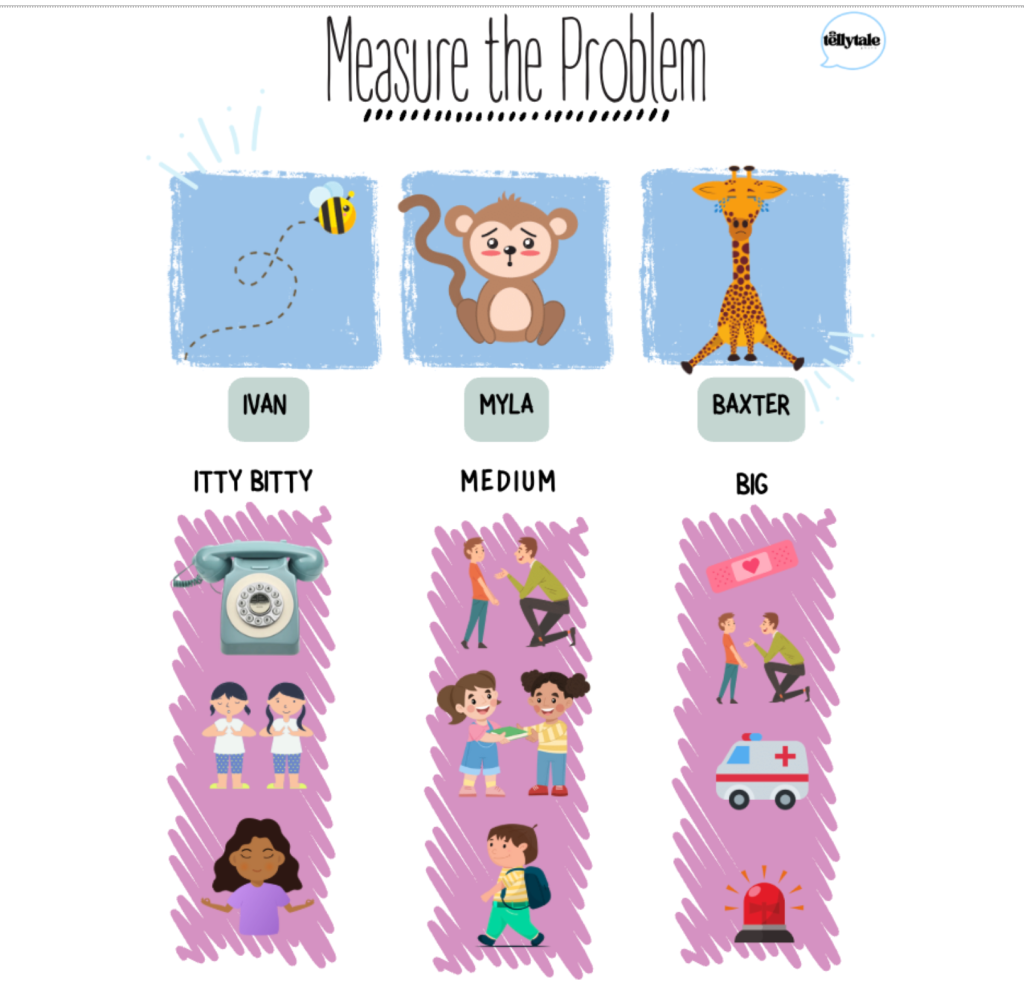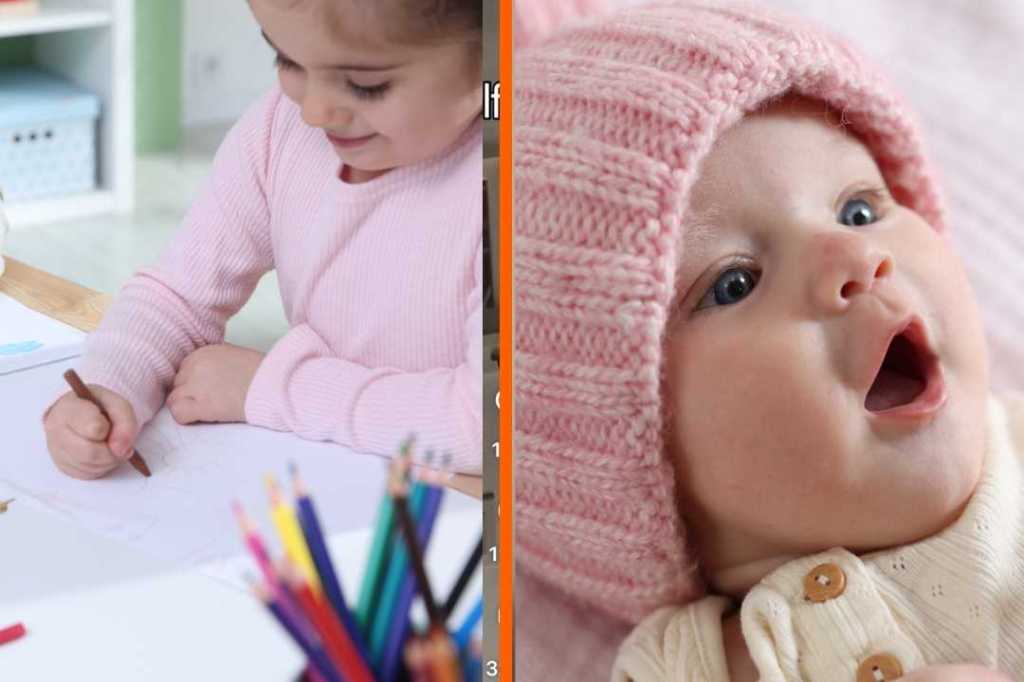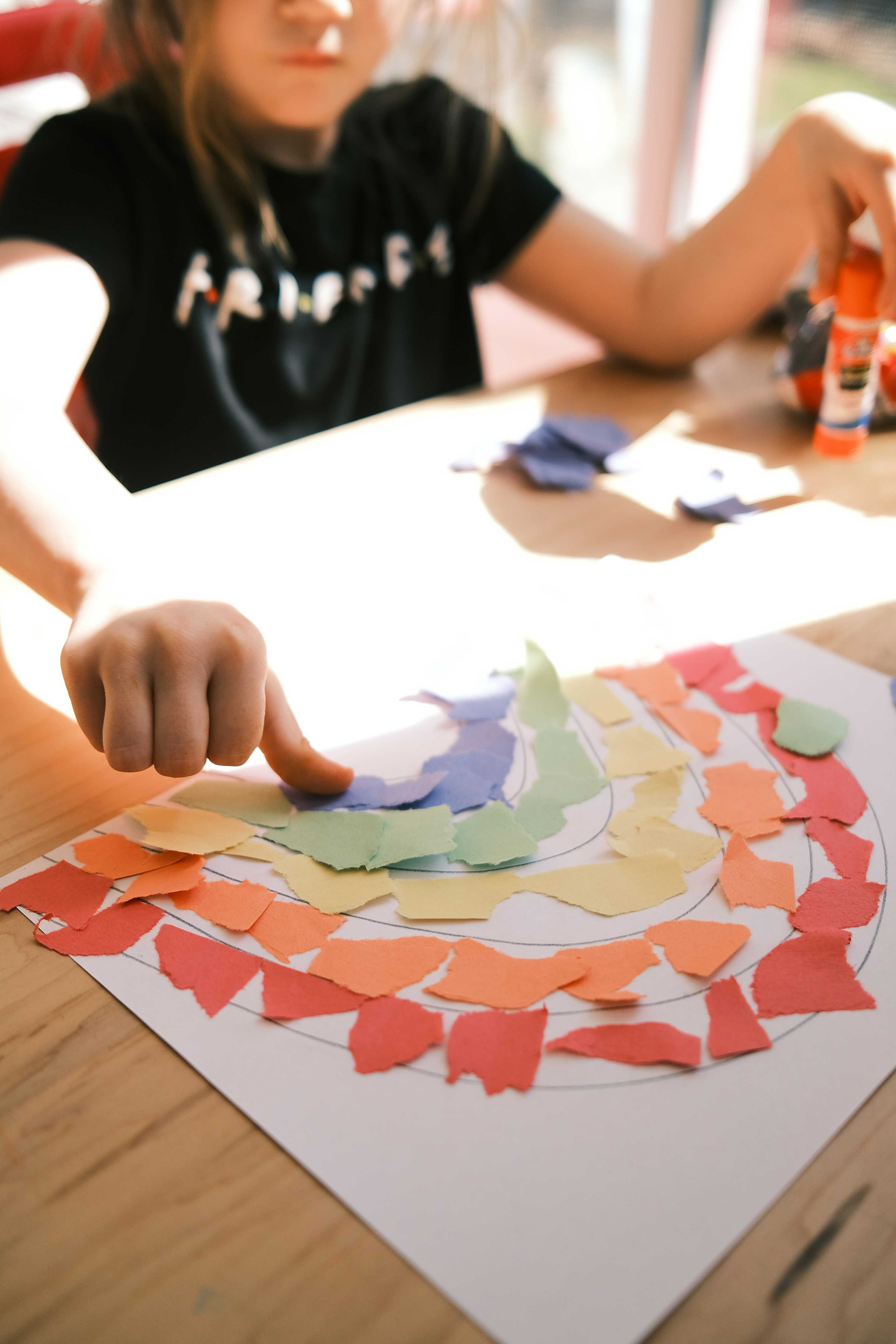When Rachel Heimke was seven, she realized what she wanted to do for the rest of her life. Little did she know a $40,000 BigFuture Scholarship would help her pursue her dreams.
Heimke and her parents were living an unconventional lifestyle, to say the least. The summer after she completed first grade, she and her parents boarded a sailboat and sailed from their hometown in Alaska down the Pacific Coast. The family would spend the next two years traveling on the water, passing Mexico and then sailing across the world to Australia before returning home. It was on the sailboat, watching whales and dolphins breach the water under their boat, that Heimke realized her life’s purpose.
“I was really obsessed with these little porpoises called Vaquitta, who only live in one tiny area of water off the coast of Mexico,” she recalled. “When I learned about them as a kid, there were only 22 left in the wild. Now, there are only ten.” Despite her interest, Heimke was never able to actually see any Vaquitta on her trip, both because of their inherent shyness and because they were so critically endangered due to detrimental fishing policies in the area. “That was my wakeup call,” she says. “I’ll probably never be able to see this porpoise, and I don’t want that to be true of other species.”
Now a young woman of 23, Heimke is realizing her childhood dream of ocean conservation by recently graduating with a Bachelor’s degree in ocean sciences and enrolling in a grad program in Canada to study science communication. Heimke is well on her way to achieving her childhood dream—but she acknowledges that none of this would have been possible without her ocean adventures as a child, the support of her parents, and significant financial support.
At 18, when Heimke was deciding where to study ocean sciences, she stumbled upon an opportunity from BigFuture, College Board’s free college and career planning site. The opportunity was the BigFuture Scholarship, which provided students the chance to win a $40,000 scholarship by completing six action items on the website. Heimke was intrigued, since she didn’t need to provide an essay, her GPA, or any test scores to enter. Her eligibility was also not tied to citizenship status or family income, so she decided to give it a shot.
“One of the action items was just going on the BigFuture site and creating a list of colleges I was interested in,” said Heimke. Another item required her to apply for financial aid through FAFSA—something Heimke was planning to do anyway. Every completed action item gave students more chances to win the scholarship, so Heimke completed all six action items quickly.
Months later, Heimke’s parents ushered her over to a call over Zoom, where she met a BigFuture representative who had some surprising news: She was one of 25 students who had won the $40,000 BigFuture college scholarship. Each year she would receive $10,000 in scholarship funding, which would cover her entire tuition bill for all four years of schooling.
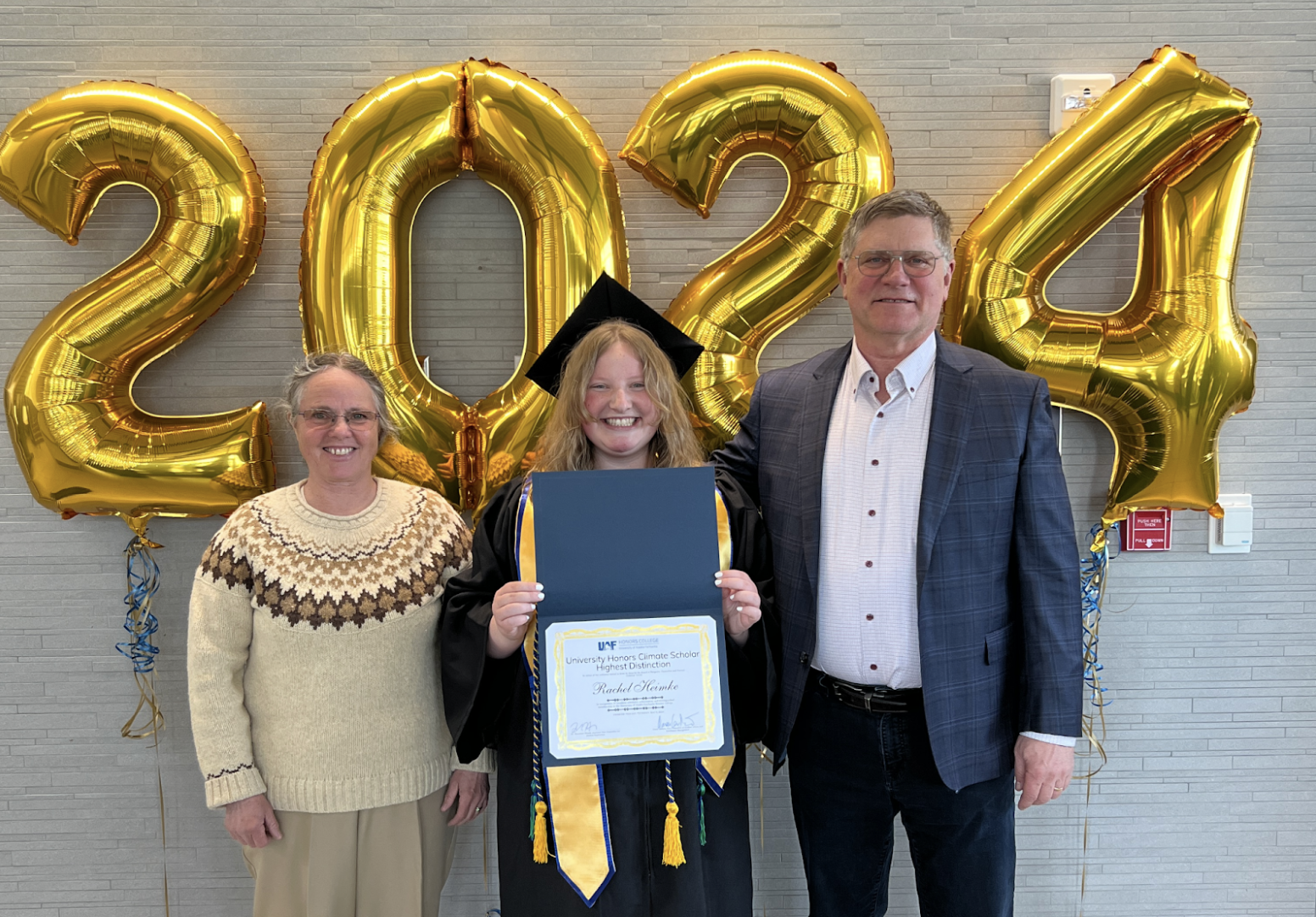
“That experience taught me that it’s really important to not give up on your goals and just go for opportunities,” said Heimke. “I never thought I would win anything, but I’ve learned it’s worth applying anyway. Even a small scholarship of $1,000 can pay your rent for a month,” she said. “And If you write an essay that takes an hour and you win $5,000, that’s probably the most money per hour you’ll ever make in your life.”
The tuition money made it possible for her to attend college, and for her to apply to graduate school immediately afterward without any financial burdens.
“Now that I’m in graduate school and paying for rent and a phone bill and graduate school tuition, it’s truly a blessing to not have student loan debt on top of that,” Heimke said. Because of the BigFuture scholarship, Heimke doesn’t need to pay for her graduate program either—she’s able to fund her education with the money her parents saved by not having to pay for her undergraduate degree.
One of the biggest blessings, Heimke said, was not needing to delay graduate school to work or find extra funds. With climate change worsening, entering the workforce becomes increasingly important over time.
“I’m not sure exactly what I’ll do with my degrees, but I hope to have a lot of different jobs that ultimately will work toward saving our ocean,” she said.
As a child, witnessing marine life up close and personal was life-changing. Heimke’s goal is for future generations to have that experience, as she did.
To learn more and get started, visit bigfuture.org/scholarships.
